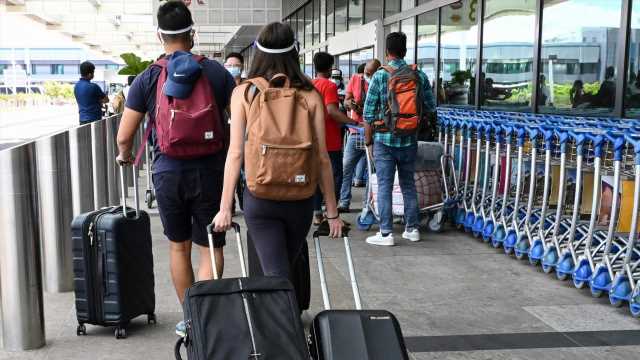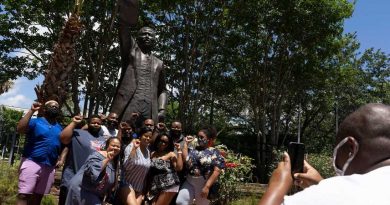Singapore to launch its first vaccinated travel lanes with Germany and Brunei
Singapore has announced they will be reopening their borders to allow in vaccinated tourists from a range of destinations, including residents from Hong Kong, Macao, Germany and Brunei.
Travellers from the listed countries will be able to enter Singapore from September 8 without needing to enter quarantine, essentially meaning they can bypass the isolation requirement if they test negative to four Covid-19 tests.
The testing requirements for the new travel lanes mean each person will require a pre-departure test within 48 hours of their scheduled flight, an on-arrival test at Changi Airport, and post-arrival tests on days three and seven at a designated clinic in Singapore.
If a foreign visitor fails or refuses the tests, they may face charges under the Infectious Diseases Act.
RELATED: Singapore’s surprising new plan to ‘live with Covid-19’ revealed
Singapore will open travel lanes with Germany for vaccinated travellers. Picture: Suhaimi Abdullah/Getty Images for International Paralympic CommitteeSource:Getty Images
RELATED: The Covid-19 statistic Australia has to wean itself off
If someone tests positive after landing into Singapore, they will be issued a stay-home notice to be quarantined in a dedicated facility, authorities said.
Under the new travel order, a person must be fully vaccinated for two weeks after they have received both doses of either Pfizer, Moderna or other vaccines listed under the World Health Organisation (WHO) emergency use list, such as Sinovac and AstraZeneca.
In June, as one of the world’s most successful countries at combating Covid-19, Singapore said it would make major changes to the way it managed the pandemic.
The city state of Singapore has stated Covid-19 will be treated like other endemic diseases such as the flu.
There will be no goals of zero transmission. Quarantine will be dumped for vaccinated travellers and close contact of cases will not have to isolate. It also plans to no longer announce daily case numbers.
Travellers will need to have four Covid-19 tests, including one at Changi airport on arrival into Singapore. Picture: Roslan Rahman/AFPSource:AFP
Senior Singaporean ministers have said it is the “new normal” of “living with covid”.
“The bad news is that Covid-19 may never go away. The good news is that it is possible to live normally with it in our midst,” wrote Singapore’s Trade Minister Gan Kim Yong, Finance Minister Lawrence Wong and Health Minister Ong Ye Kung said in an editorial in the Straits Times this week.
“It means that the virus will continue to mutate, and thereby survive in our community.”
Having never got to zero cases, Singapore now no longer wants to.
Like most countries, Singapore had an initial peak of cases last year, topping out at 600 cases a day in mid-April. Following a smaller wave in August, the virus hasn’t really flared up since.
The nation of 5.7 million, slightly larger than Sydney, has had a steady undercurrent of around 20-30 cases every day and a total of 46 deaths. Since the beginning of July, however, cases have slowly started to increase to sometimes triple digits. The latest reporting period of April 19 indicated just 32 cases of Covid-19 recorded.
The travel bubble will be a step forward for Singapore’s return to normality. Picture: Roslan Rahman/AFPSource:AFP
Now, Singapore ministers are charging their country towards a new ‘Covid normal’, which in time will see the airport, seaport, office buildings, malls, hospitals and educational institutions use kits to screen staff and visitors.
Because most will be vaccinated, cases will be less of an issue, and the need for contact tracing and quarantining will be low.
One of the biggest daily changes of all will be the elimination of publicly sharing daily case numbers on news outlets.
Instead, Singapore authorities will monitor Covid-19 infection numbers every day, and will focus more on the outcomes: how many fall very sick, how many in the intensive care unit, how many need to be intubated for oxygen, and so on.
In short, how Australia – and other countries around the world – monitor influenza.
– With Benedict Brook
trending in travel
Source: Read Full Article







